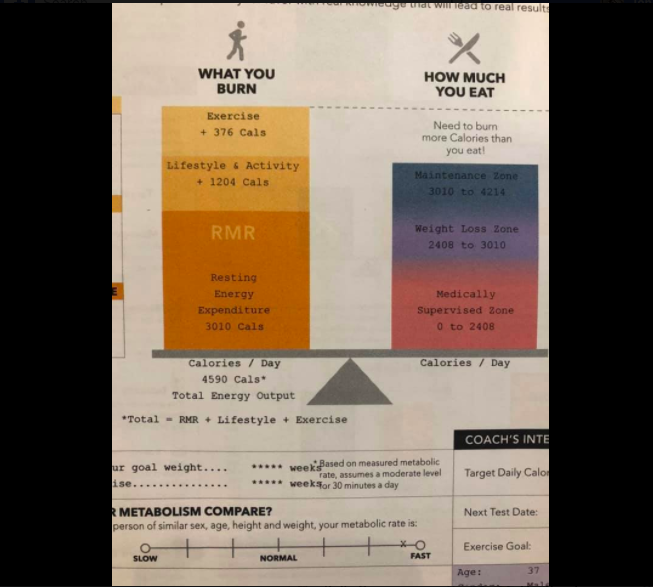|
Everything about us (even our education level) changes the predictability of our metabolism: https://nutritionandmetabolism.biomedcentral.com/…/s12986-0…
Fat cells appear to have an attenuating effect on metabolism. Skeletal muscle amplifies it. Demographics affect it. And perhaps most importantly there is AT BEST a 10% variance between predicted metabolism and measured real metabolic rate. Think about that. If you track exercise and calories to perfect precision, you’ll still have a 10% or greater difference in outcomes than expected. Pause. Dwell on this. If you have been Nazi-level 100% compliant on nutrition and activity for three full weeks, you could easily see not a single pound lighter on the scale. Even if the deficit number was "correct" to begin with, your body adjusts within 72 hours and caloric prescription already changed. These are averages, mind you. In extreme weight loss patients, real metabolism is 20-25% lower than expected EVEN when accounting for changes: https://www.ncbi.nlm.nih.gov/m/pubmed/27136388/. Quantify that in your brain. That's slaving for four weeks and MAYBE getting three weeks worth of expected outcome. The photo above is not an estimate. It is my MEASURED caloric burn (with a respiratory exchange mask on my face) after 6 total days of fasting from food. The extrapolation off of that direct measurement put my maintenance food intake at 4,590 calories per day. The Harris formula at the time estimated my need at 2,056. So there was a 2,534 calorie discrepancy between the best estimates on earth and an actual scientific and empirical measure. In the biggest loser participants, their MEASURED metabolisms were as much as 1,300 calories LOWER than the best formulae out there. Think about this, folks. THREE-THOUSAND EIGHT-HUNDRED calorie variance between expected and actual metabolisms. That's a much wider range than what people are thinking constitutes significant food variance. This is why you hear a chuckle out of great trainers and coaches when people say, "I ate pretty well" or "I don't eat that much" or "I've been really active" or "I don't know why I'm not losing weight." These are meaningless, imprecise, flimsy statements. A teensy tiny little palmful of food can be forgotten even though it's 300-1000 calories. Meanwhile, metabolic rate is up or down 1,500 to 2,500 from individual to individual and from day to day. Takeaway: the number is moving. So too must our strategy. Someone wants to lose 15lbs in 3 months. How about we lose 20? And the three months AFTER the loss is where we ensure intensity and athleticism increase. How about the 6 months after that we plot out a progression model? The program has to keep moving, because metabolism keeps shifting. Metabolism is on the move. Your plan must be as well.
0 Comments
Your comment will be posted after it is approved.
Leave a Reply. |
Elev8 Wellness
|
LIVE. AWESOME.We offer the highest quality in personal fitness, nutrition, and mindset coaching, helping you achieve your fitness, health, wellness and performance goals no matter the obstacle. With virtual online training and private, in-studio training we make it easier to reach your wellness goals safely.
No more can't. No more not good enough. If you compete in a sport, let your mind no longer hold you back from being the greatest. If you don't, let your mind no longer hold you back from being the best version of you that you can be. Sign-up for a Tour Covid Screen Waiver Elev8 Waiver Become an Elev8 Instructor Space Rental |
6244 lyndale ave. s., minneapolis, mn 55423
|
© 2021 Elev8 Wellness LLC. All Rights Reserved. site map | contribute | SITE BY Sproute Creative


 RSS Feed
RSS Feed
